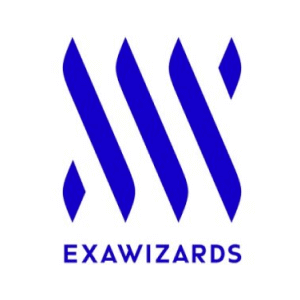Updated December 1, 2022
What's a "Seishain"? How Full-time Employment Works in Japan
The type of your employment contract affects your life in Japan more than you think. As a foreigner, if you’re looking for a job here, you need to be familiar with the types of employment contracts you’ll come across.
Not all contracts get you a visa, and there’s a specific type of employment you should be searching for if you wish to settle down in Japan.
It’s called a “seishain,” and it means regular, full-time employment.
In today’s post, I’ll tell you all about being a seishain in Japan, other types of employment, as well as their benefits.
Without further ado, let’s have a look at what seishain exactly means.
What is a Seishain?
A seishain (正社員) is the legal title of a regular, full-time employee in Japan. This type of employment is the strongest, as it’s regarded as the highest employment status in terms of job security.
Seishain: Meaning and Origin
The origin of the word dates back to the 1980s.
Before WWII, full-time employment was regarded as a privilege in Japan. Once the war was over, full-time employment started to become common, and part-time employment started popping up around the ‘80s.
This was when the term seishain started to gain popularity as a way to separate part-time and full-time workers. It’s been in use since then, and nowadays, it refers to regular full-time employment.
A seishain contract is perhaps the hardest to get if you’re a foreigner. However, if you’re looking for jobs as an engineer, you’re more likely to find them. I wrote about finding a job as a software engineer in Japan in detail in another post, so feel free to have a look.
Basically, a seishain is a direct and permanent employee of a company. They work full-time, and the contract is signed for an indefinite amount of time. This is why being a seishain is the most desirable type of employment in Japan.
Landlords also love to see that you have a full-time contract because it means financial stability. Banks want you to be a seishain for at least a few years before they even consider issuing you a loan.
It’s a status symbol, through and through.
Now that you know the definition and the origin, let’s talk a little bit about the benefits of being a seishain in Japan in more detail.
The Benefits of Being a Seishain

A seishain contract is the most useful type of contract you can have in Japan. The benefits are endless, and the job security it provides is a dream for many.
In Japan, the economic turmoil of the recent decades and the westernization of work practices have made this type of employment much more valuable. It’s quite common nowadays to have contract-based workers or freelancers instead.
The fact that the majority of the population is old and the birth rates are low isn’t helping the situation either.
Even though the definition refers to “regular” full-time employment, in time, seishain became sort of a big deal.
First of all, you can’t really be fired unless something major happens, so job security is the main reason people want it. However, you also get insurance benefits along with it, and the contributions you’ll pay for your pension and insurance will be much cheaper than that of other employment types.
Seishains also get annual paid leave and sick leave benefits, as well as having their commuting costs paid by the company.
As your contract is endless, you also have the possibility of salary increases as you advance in your career.
However, keep in mind that even if your contract is endless, that doesn’t mean that you’ll be doing the same job indefinitely.
Usually at modern tech companies (like the ones on Japan Dev), it’s not an issue. But at older-school companies in Japan, it’s common to implement a rotation system where employees change positions and departments every few months (or years).
You can ask about this when you’re applying for a job or during your job interview. I recently covered a wide range of tips for job interviews in Japan in another post. I believe that it’ll be helpful in your job hunt.
Other Japanese Employment Types
As I explained, seishain isn’t the only type of employment contract you’ll come across. In fact, you’re more likely to find job listings for other types of contracts. As opposed to regular employment, there are contractor employment agreements, which are called “Shokutaku.”
In this section, I’ll explain what these other types of employment are and briefly talk about their benefits and differences.
Keiyaku-shain (Contract-Based Employee)

Keiyaku-shain (契約社員) is a contract-based employment type that’s common in Japan, and it’s very similar to seishain. However, as you’d expect, this employment type is only for a limited time. This is why it’s also called fixed-term employment or contract-based employment.
Getting a keiyaku-shain contract is often the step before becoming a seishain. If you build enough trust with the company, there’s a good chance you’ll eventually become a seishain.
While the benefits are mostly similar to that of seishain, job security isn’t a thing when it comes to keiyaku-shain contracts, as they’re usually signed for 6 or 12 months. Getting fired is also “easier.” Moreover, you won’t be considered a “full member” of the company, but rather a temporary worker.
There’s also another contractor employment type, which is Gyoumu-itaoku.
Gyoumu-Itaku (Self-employed/Outsourced Employee)
A gyoumu-itaku (業務委託) is another type of employment in Japan that’s limited by the term of a contract. It refers to people who are self-employed or outsourced workers, and it can also mean “freelancer.”
Working as a gyoumu-itaku is a lot different than the employment types I’ve covered so far because you’re not actually considered an employee. You don’t even work at the office of the company that hires you. The Japanese labor law doesn’t recognize gyoumu-itaku as workers, as they’re considered to be self-employed.
While you may not have the benefits of a seishain or even a keiyaku-shain, you have complete autonomy over your work hours and workload. Besides, as long as you earn enough from the jobs you take, your visa status won’t be affected.
Also, keep in mind that some gyoumu-itaku jobs can turn into a keiyaku-shain or even seishain agreements in time.
Some companies like to outsource people first to test their abilities. If a company likes your work, they might hire you to work temporarily at the office. If that goes well too, you may very well end up as a seishain.
Haken Shain (Dispatch Worker)
A haken (派遣社員) is another type of contract-based temporary staff. Think of it as a subcontractor-type deal.
Basically, companies hire contractor agencies, and these agencies dispatch their workers to the companies that hire them for a set period.
However, for foreigners, this type of employment usually refers to working as an English teacher temporarily. It’s kind of rare and unrealistic for a foreigner to come to Japan, sign up in an agency, and be assigned any type of work.
In Japan, public schools are required to have assistant language teachers, and they usually source these teachers from haken shain agencies. This is why it’s quite common for foreigners to work as an assistant English teacher in Japan for short periods.
One thing to look out for when it comes to haken shain is that the work conditions are usually harder than that of others I covered in this post. Your agreed-upon work hours might not be reflective of how much you actually work either.
Conclusion

As I explained, seishain is the regular employment type in Japan, and it’s for an unlimited amount of time. The job security is top-notch, and getting fired is very hard.
There are also other types of employment (shokutaku) that are for a limited amount of time.
You can be a keiyaku-shain and work on a fixed term with benefits similar to that of a seishain. You can also work as gyoumu-itaku, which means self-employed, or as a haken, which is a temporary employee dispatched from an agency.
However, as a foreigner, you’ll most likely need regular employment — a seishain contract. I already shared my job-hunting guide above, but you can also check out my post on headhunters in Japan to find out if a recruiter is the right way to go for you.
Get Job Alerts
Sign up for our newsletter to get hand-picked tech jobs in Japan – straight to your inbox.







